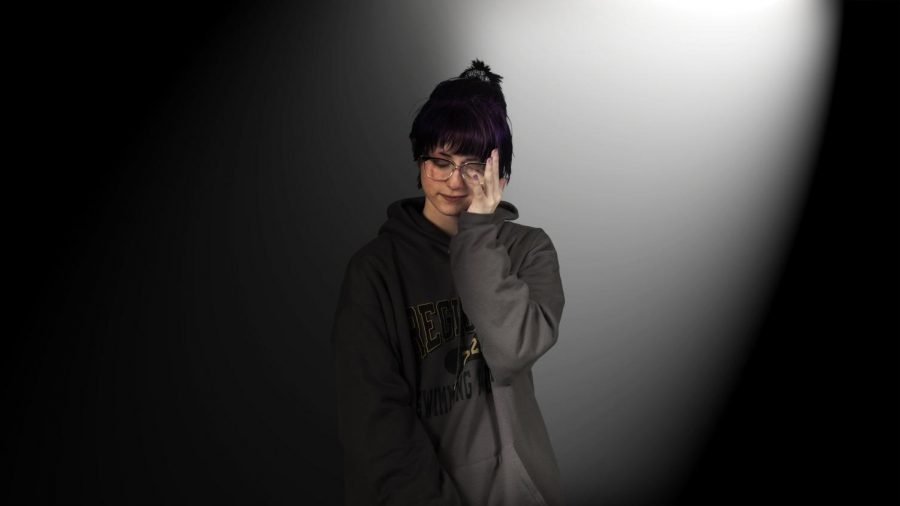Body positivity
Reestablishing the beauty standard
Growing up in a society that believes in these ideals for people can take a toll on kids growing up. This is the case for junior Alex Hines, who has grown up being body shamed for being too skinny.
February 18, 2021
Hourglass figure, weighs under 120 pounds, no acne, no stretch marks and hairless like a newborn. These are some of the requirements of the perfect woman in societys’ eyes. Anything outside of these guidelines could be considered wrong and ugly — which is something that needs to be fixed.
Growing up in a society that believes in these ideals for people can take a toll on kids growing up. This is the case for junior Alex Hines, who has grown up being body shamed for being too skinny.
“[People have body shamed me] mostly throughout middle school and sometimes high school,” Hines said. “Seeing as I already have mental health issues, hearing people comment on my body really doesn’t help that, and it doesn’t make me feel great about myself.”
The fact that some people feel it is necessary to comment and poke fun at other people is troubling enough, but to think of what must go through the minds of those who choose to give their unsolicited opinion on what other people should look like and trying to describe it as being “concerned about your health” is inconceivable.
“Sometimes, [people are mean] just because they want to be mean and want to hurt others,” Hines said.
I feel like [people body shame others] because they see something in others that they don’t see in themselves
— Alex Hines
This abuse may seem rare, but it is actually becoming more and more common to comment on others’ bodies. For the norm in society to be the constant commentary on other peoples’ bodies shows a progressive relapse in people’s collective mindset and ideologies.
“Society sees beauty as being thin, a specific weight, having this specific figure, doing your makeup right, doing your hair right and dressing nice. Anything that doesn’t fit [those standards] is automatically wrong or ugly or disgusting, and that hurts a lot of people,” Hines said.
There has been a recent movement on social media referred to as the body positivity movement. This revolution is built on empowering people of all shapes, sizes and colors to accept themselves and their flaws. From acne to stretch marks, plus size to super skinny, it is people simply loving who they are and rejecting society’s beauty standards.
The movement has swept across the internet on TikTok and Instagram by spreading their message of self love. For people who have grown up thinking their “imperfections” were something that needed to be changed, this message is more important than ever.
“I think [the body positivity movement] is really great, especially for teens and middle schoolers,” Hines said. “Seeing people who look like them, who are like them, presenting themselves in a positive way that you usually wouldn’t see in society helps a lot of people, both mentally and physically.”
This movement may signify an end to this oppressive ideal on bodies. Showing how people are beautiful in their own skin, no matter what that skin looks like, is trying to battle the way that our culture perceives beauty.
“I feel like [the body positivity movement is] gonna make a change, a positive change at that,” Hines said. “It’s gonna change how people see and perceive beauty as it is.”
Though this movement is a step in the right direction, there is still a big uphill battle to be fought before body shaming is extinguished, and people can be free to look as they please in whatever makes them feel the most beautiful.
“Don’t allow how others perceive you to dictate how you perceive yourself because at the end of the day, what they say about you isn’t what you are,” Hines said. “You are what you think you are, and if you [believe what negative things other people say about you is true], then you’re just allowing them to [control who you are]. You’re allowing them to harm you when they shouldn’t be able to do that.”





















